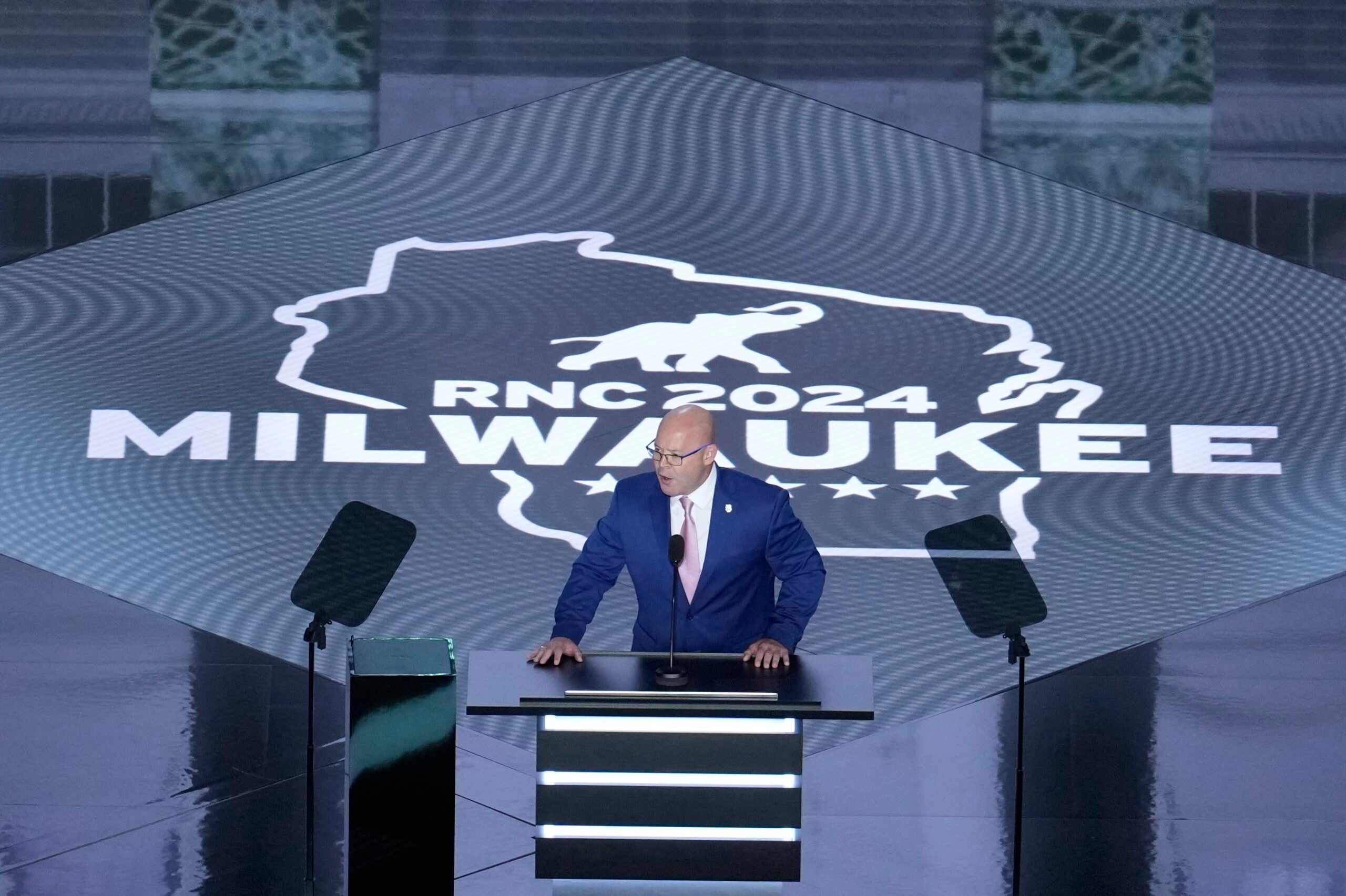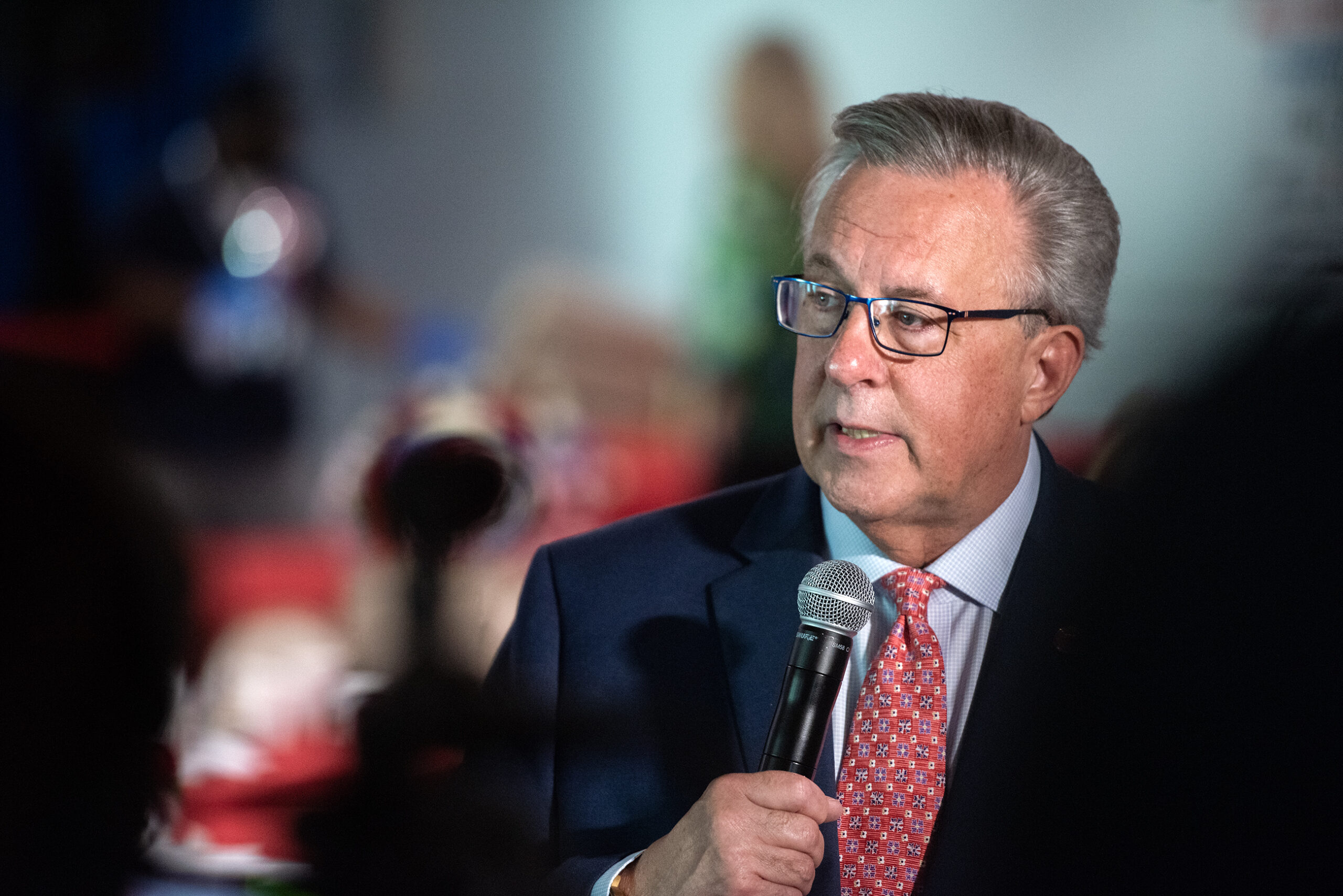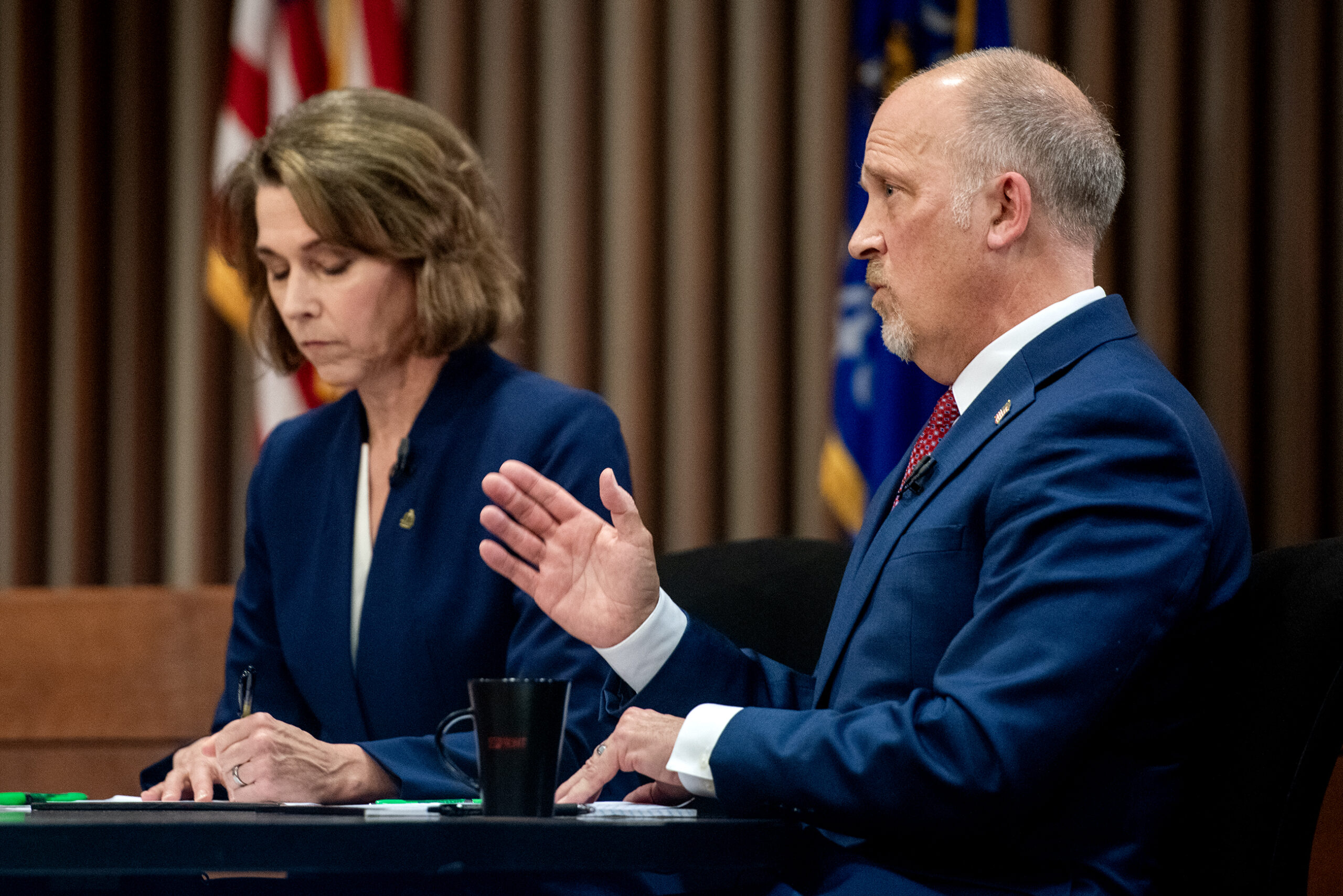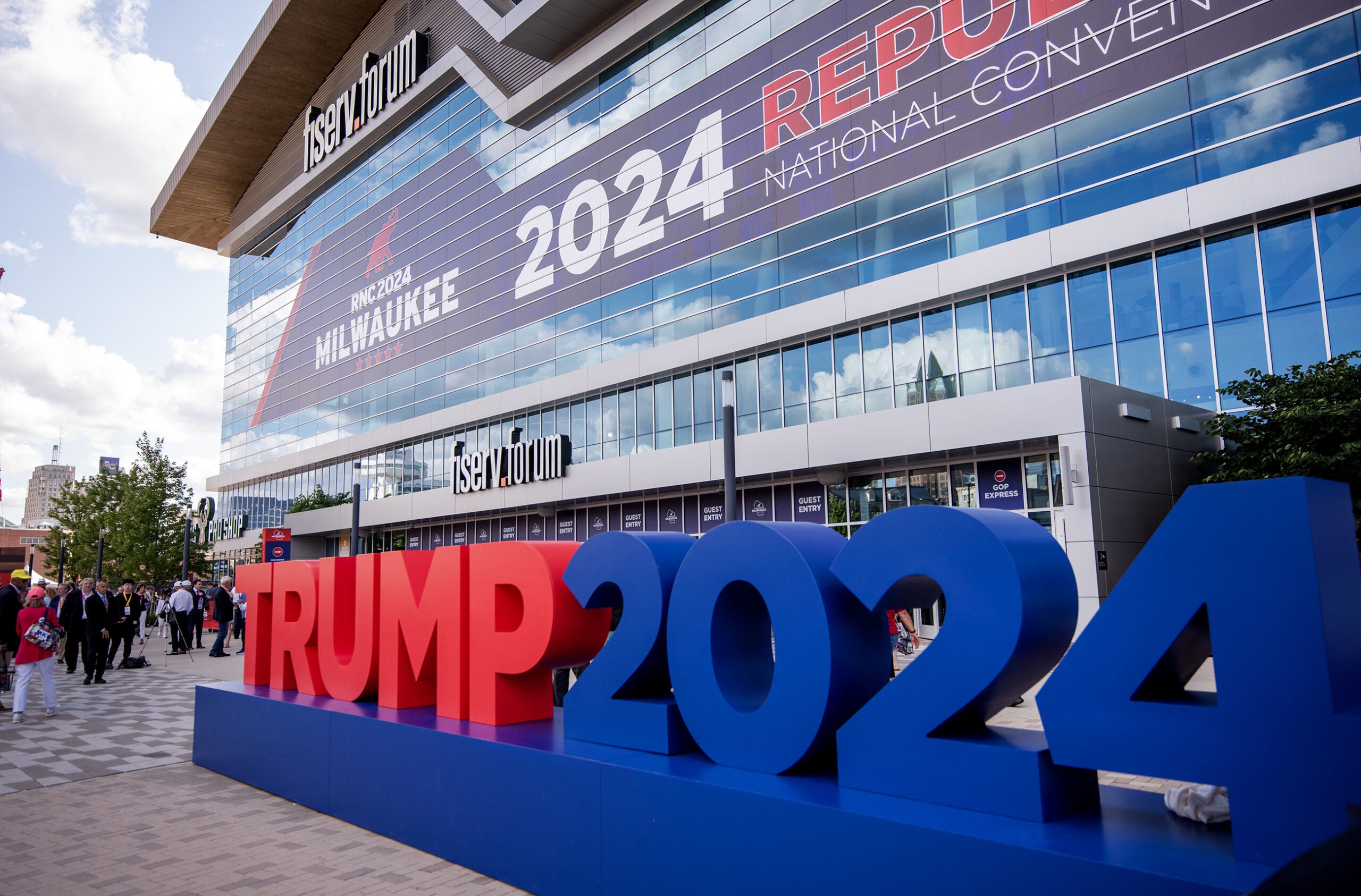When Teamsters President Sean O’Brien on Monday night became the first leader from his union to ever take the stage at a Republican National Convention, he made a sharp pro-union statement in a state roiled in recent years by anti-union policy shifts.
His remarks in downtown Milwaukee came 13 years after the passage of Act 10, an initiative of then- Gov. Scott Walker that fundamentally altered how public employee unions function in Wisconsin, once known as a stronghold of organized labor.
O’Brien, who has said he also requested speaking time at next month’s Democratic National Convention, addressed Republican Party faithful Monday night, calling on all parties to support union politics.
Stay informed on the latest news
Sign up for WPR’s email newsletter.
“At the end of the day, the Teamsters are not interested if you have a ‘D,’ ‘R’ or an ‘I’ next to your name,” he said, referring to politicians’ party affiliations. “We want to know one thing: What are you doing to help American workers?”
Teamsters have endorsed Democratic candidates since the Clinton administration, but O’Brien noted that they backed Republican Presidents Richard Nixon and Ronald Reagan, and he praised former President Donald Trump for welcoming him to the convention.
“Today, the Teamsters are here to say we are not beholden to anyone or any party,” he said to cheers.
While O’Brien did not endorse Trump — an act that would require sign-off by others in the union who are reportedly at odds over O’Brien’s overtures to the RNC — his presence signaled a shift in how the powerful, 1.2 million-member trade union will position itself this election cycle.
On the western edge of the security perimeter on Tuesday, members of the Milwaukee Area Service and Hospitality union (MASH) checked in on their way into work. Manning the table, the union’s president, Peter Rickman, said between 500 and 700 unionized service workers staff the RNC on a given day.
He said O’Brien’s speech was light on details about “the actual things that really matter to working class people, including the service and hospitality workers in that building.”
“I found it to be pretty frustrating that our members and working people across the country in unions had to sit there and watch this guy, you know, basically muddy the water when it comes to the political choice in front of working people this November,” Rickman said.
Rickman, who was a student leader during the protests against Act 10 at the state Capitol in Madison, said that Republicans are wise to court union voters angry over economic policy.
But, he argued, the policies otherwise promoted at the Republican National Convention do not serve the interests of his members.
“There’s an interesting moment on the right here where some people are realizing that they may need to actually reconsider how they look at trade unions, and I welcome that and hope they will join people like us in fighting for union rights, living wages and a balance of power between the boss class and the working class,” he said.
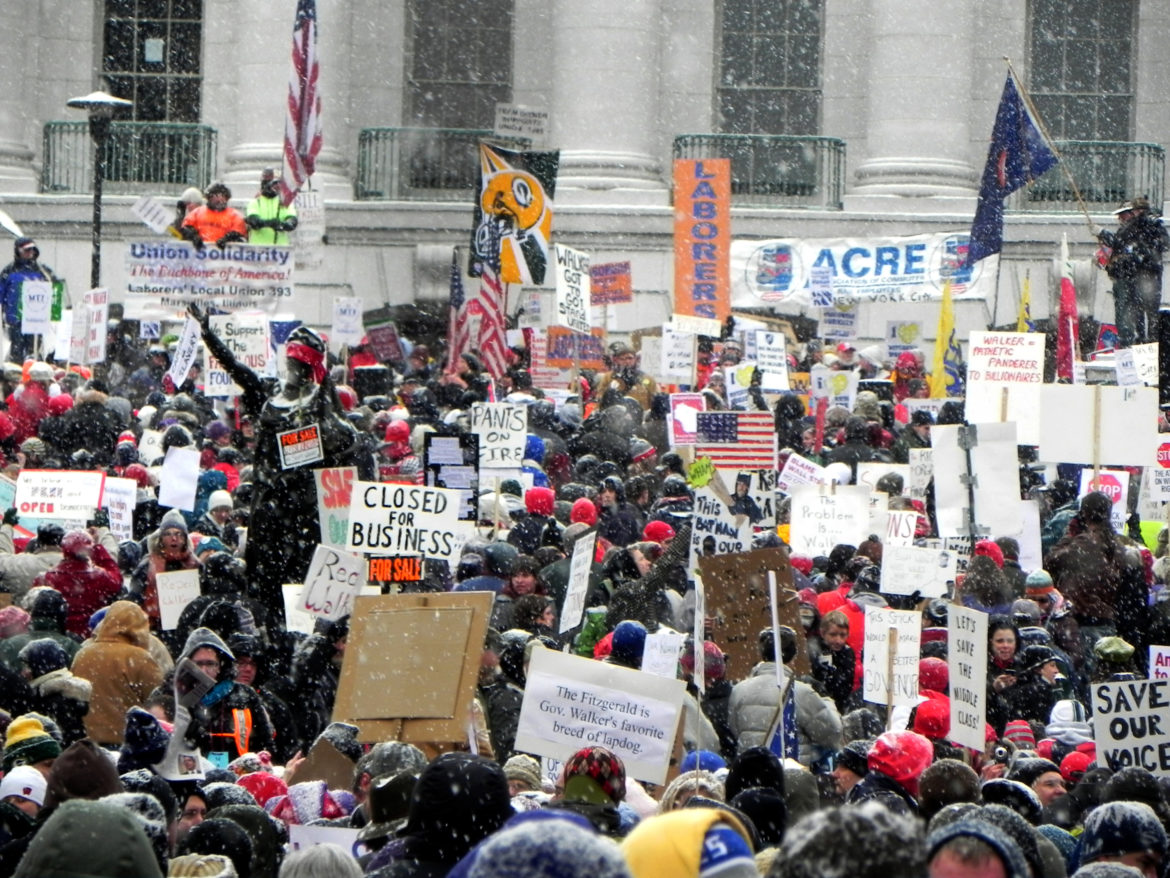
O’Brien has indicated that the Teamsters may not make an endorsement until much later this year, in part because the union must still vote amongst itself on which direction to go.
After O’Brien met with Trump at his Mar-A-Lago estate earlier this year, one Teamsters board member called Trump a “known union buster” and “scab,” arguing that pro-worker rhetoric does not amount to pro-union policy.
Wisconsin Democrats echoed that idea Tuesday morning with a press conference aimed at contrasting Biden’s record with Trump’s.
Wisconsin Democratic Party Chair Ben Wikler pointed to actions Trump took to undercut the National Labor Relations Board and the Occupational Safety and Health Administration, known as OSHA. Policies in Project 2025, a conservative agenda written by some Trump allies, would abolish the federal minimum wage and public sector unions.
Biden has repeatedly referred to himself as the most “pro-union” president in American history, and marched a picket line with members of the United Auto Workers on strike in Michigan last year.
The Biden administration has pursued union-backed policy changes, including pushing pro-union provisions in each of his signature infrastructure and manufacturing bills. Biden’s American Rescue Plan Act included a bailout of union pension plans.
Dozens of unions have endorsed Democratic candidates up and down the ballot, and have already endorsed Biden’s reelection campaign. Stephanie Bloomingdale, who heads the Wisconsin AFL-CIO, said she agreed with O’Brien’s “criticism of corporate greed,” but added that her union supports President Joe Biden because of his avowedly pro-union stance and policies.
“Donald Trump’s approach to working Americans draws heavily on the tactics of the shell game operator,” she said. “His sleight of hand rhetoric is designed to focus attention on fear and false but emotionally charged issues while his other hand is busy stripping workers of the means to earn a decent living.”

For Republicans, a change in tone, if not in policy
But some Wisconsin Republicans said O’Brien’s presence helped demonstrate their party’s commitment to working people, regardless of union membership.
U.S. Rep. Tom Tiffany, R-Minocqua, voted for Act 10 as a member of the Wisconsin Assembly in 2011. In 2015, as a member of the state Senate, he voted for Wisconsin’s “Right to Work” law, which banned mandatory union dues at private sector businesses. Both votes enraged union members, leading to hard feelings between organized labor and Wisconsin Republicans that arguably continue today.
Tiffany said Trump’s emphasis on producing things in America wouldn’t get unions everything they want, “but it gets some jobs,” which he said would benefit unions and boost their membership.
“We need to rebuild America,” Tiffany said. “And it’s going to take everyone to do it, including those members of the Teamsters.”
Trump’s overture to workers has reflected that stance, with promises to reduce inflation for people struggling with high costs and enact protectionist trade deals. Trump also promises to cut back on immigration that he says undermines access to jobs, a stance that many unions actively reject.
“When I am back in the White House, the hardworking Teamsters, and all working Americans, will once again have a country they can afford to live in and be respected around the world,” Trump wrote on social media.
Rosemary Feurer, a labor historian at Northern Illinois University and the author of a book on Midwestern unions, called the class sentiments of O’Brien’s speech unusual for a Republican National Convention, but she said it was stronger on spectacle than issues.
“He did not give (Republicans) a spanking, let’s say, to say, ‘Oh, your party has never endorsed the (Protecting the Right to Organize) Act,’” she said, referring to federal legislation that would make it easier to organize workplaces.
That’s a policy that Biden and House Democrats backed but faced opposition from Senate Republicans who argued it was bad for business growth and job creation.
“It’s going into that kind of faux populism, where it’s like, ‘Yeah, you have all sorts of grievances,’ but then not really trying to lay out on the line what do working-class people need,” Feurer said.
Feurer said that unions have been defanged over decades by both parties, and therefore don’t have the same electoral strength they once enjoyed. She said Wisconsin saw the tides of labor strength shift ever since Act 10 weakened public sector unions.
Rank-and-file support for Democrats has also waned in recent years. Some studies have suggested that a shift in union support from Democrats to Republicans cost Hillary Clinton the critical swing states of Wisconsin, Michigan and Pennsylvania in 2016 — three states that Biden clawed back in 2020 and will have to win to hold on to the White House this fall.
In Wisconsin, where presidential races are often decided by less than a percentage point, a small shift in union votes can make a difference, Feurer said.
“Survival of the unions has been the main issue in Wisconsin in recent years,” she said. “If the unions feel they’re in an existential threat, they may be able to mobilize more in Wisconsin, and make the difference.”
Wisconsin Public Radio, © Copyright 2025, Board of Regents of the University of Wisconsin System and Wisconsin Educational Communications Board.
